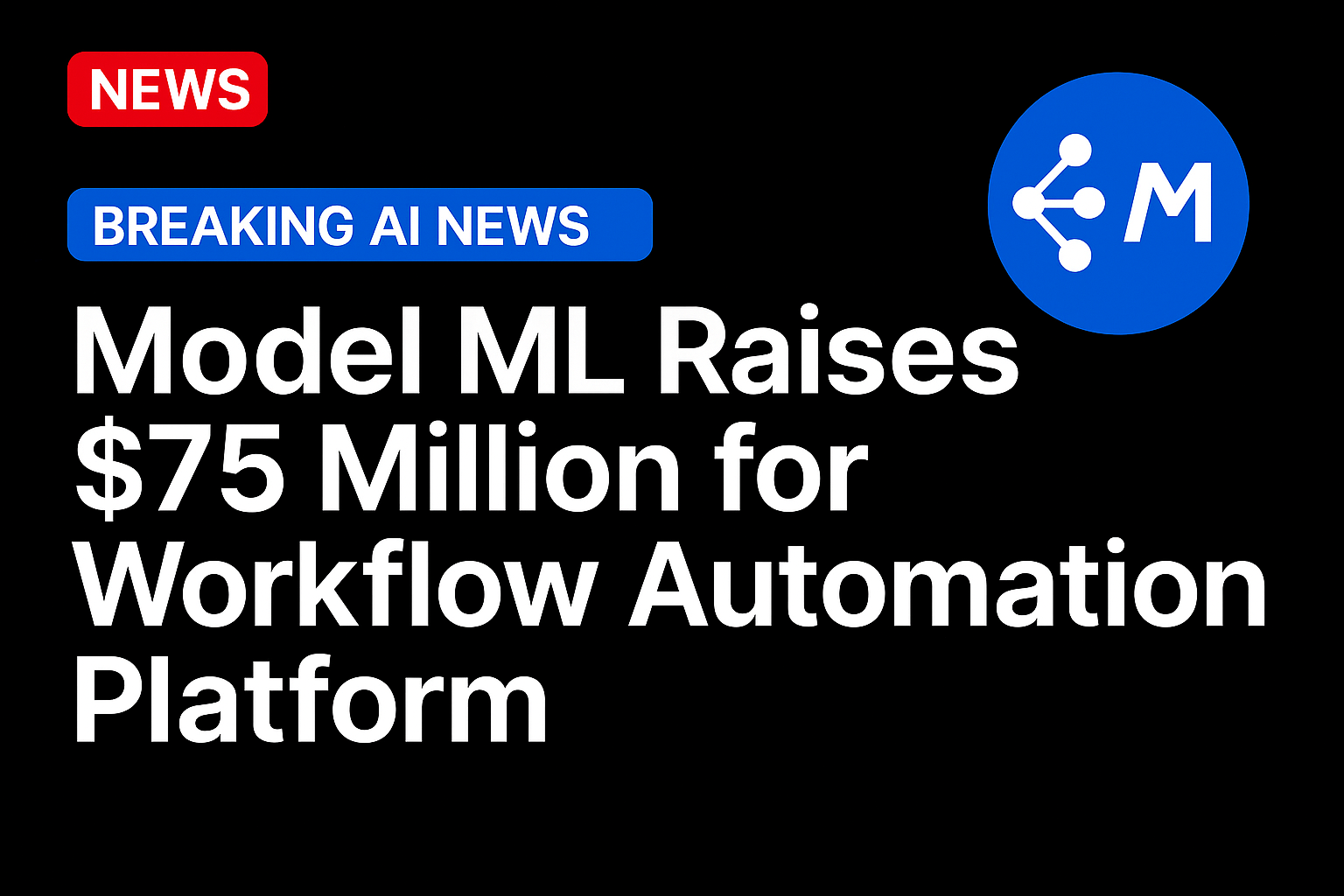
Model ML has raised $75 million for its financial-services-focused artificial intelligence (AI) workflow automation platform.
The company says this new funding, announced in a Monday (Nov. 24) news release, is among the largest FinTech Series A rounds on record.
“Model ML is setting a new standard for how financial institutions leverage AI to achieve superior client results,” said Steve McLaughlin, founder and CEO of FT Partners, which led the funding round.
“While we expect significant efficiency gains, the true power of Model ML lies in the insights it will unlock for our clients, investors, and the broader FinTech ecosystem. We believe Model ML will fuel the next evolution of world-class service for our clients and transparency across all stakeholders in transactions.”
Company CEO Chaz Englander says the financing will help it accelerate its global expansion and advance its AI capabilities “across key financial hubs” to meet growing enterprise demand.
Founded by Englander and his brother Arnie, Model ML is designed to help financial teams build AI workflows that “automate client-ready Word, PowerPoint, and Excel outputs directly from trusted data, in exact prior formats,” the release said.
This capability can be applied across entire organizations, and is being used by some of the world’s biggest banks, asset managers and consultancies, including two of the Big Four accounting firms, according to the release. The company says it helps these businesses avoid slow, manual processes.
“Entire deal teams across all levels of seniority lose time formatting outputs and chasing down inconsistencies across Word, Excel, and PowerPoint,” the release said. “These inefficiencies introduce reputational risk and slow decisions.”
Model ML says it tries to close that gap with agent workflows that interpret schemas, reason across multiple sources, write the code necessary for extracting or transforming data and generate “finished, branded outputs” such as long PowerPoint decks, research reports or investment memos, with built-in verification.
Research by PYMNTS Intelligence has shown the headaches businesses encounter by remaining too invested in manual back-office processes.
For example, the PYMNTS report “From Friction to Flow: AR Automation in 2025” found that 35% of mid-sized companies rely entirely on manual accounts receivable (AR) processes, and this dependence leads to operational challenges.
These obstacles include cash flow and revenue forecasting issues, greater risk of bad debt and strained relationships with B2B partners, the report found.
“Small to mid-sized businesses (SMBs) are especially affected by a reliance on manual procedures, with more than 75% of SMBs still manually chasing collections or handling disputes via email,” the report added.
Source: https://www.pymnts.com/




